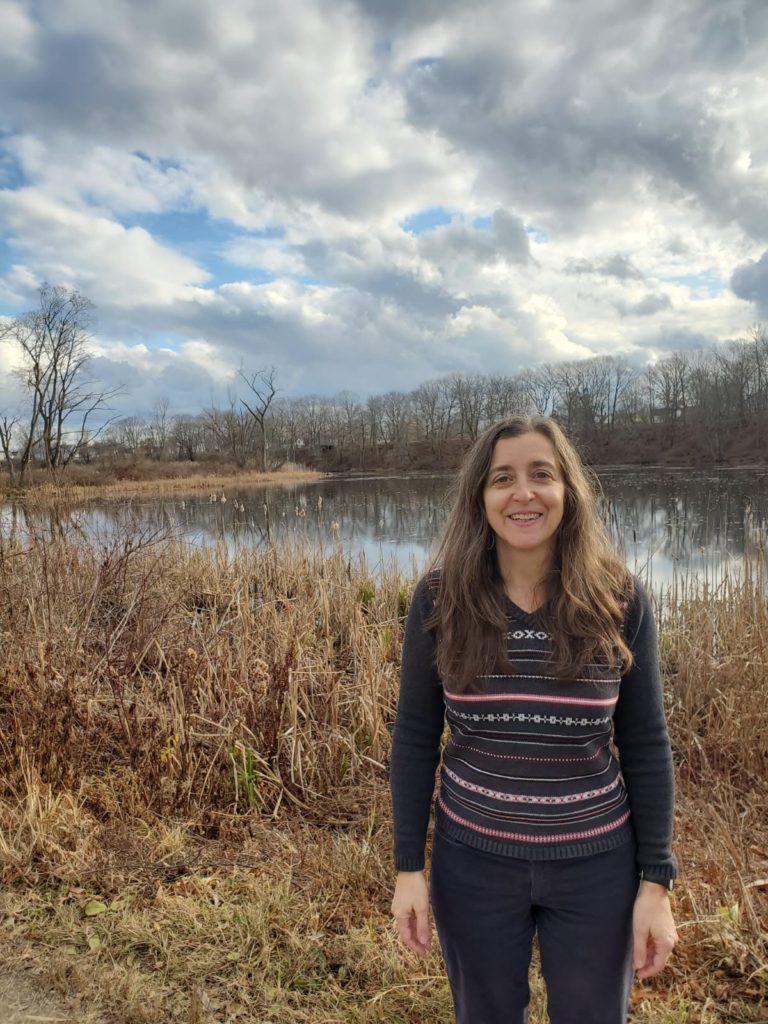Where is the hope in creation care? With Jesus, it’s everywhere
By Deb Baker
As a volunteer supporting congregations in New Hampshire participating inSustaining Earth, Our Island Home, the carbon footprint tracker for Episcopal households, I was recently asked what gives me hope in this work, when so much of the news about climate change is grim?
In reflecting on that question, I was surprised to find I had no trouble making a list. I’m hopeful because;
- None of us is ever alone in caring for creation. Strong majorities of people around the world are both concerned about climate change and willing to make changes to help reduce the effects. That means billions of people agree on the need for a more sustainable future, including most folks in our own communities and churches.
- Science and industry are working on many ways to mitigate climate change. It’s becoming a better investment to improve energy efficiency and use renewable energy. Yes, there is “greenwashing” and partisan pressure to stop investment in sustainability. Also, we have to remain vigilant about advocating for equitable as well as sustainable solutions. Still, more businesses are paying attention to environmental concerns than ever before.
- Young activists worldwide have led the way not only in calling for action but also in shoring up climate resilience in their own communities. They’ve also been successful in drawing attention to the moral imperative of climate justice and how it relates to other aspects of social justice. We can encourage and support young leaders, let them know that the church cares about what they care about, and learn from them about issues related to climate justice, such as environmental racism.
- There are simple, concrete things we can all do to care for creation. Sustaining Earth, Our Island Home suggests actions that reduce the impact of five household activities that contribute 40% of US greenhouse gases. While household activities alone cannot solve climate change, scientists agree that individual actions are a key part of the overall effort to mitigate the impacts on our warming world. These actions add up, and as more people engage in them, businesses and governments take notice and shift practices and policies. Studies show that people who are attentive to their own carbon footprints are also more likely to advocate for these kinds of societal solutions.
- Simply talking with others about climate change helps. Research shows that discussing climate change helps us feel that we can make difference, which makes it more likely we’ll act. Talking together can engage others, who may engage others, and so on. Not sure how to start the conversation? Check out this climate communication handout from EcoAmerica, consider Blessed Tomorrow Ambassador training, or follow Katharine Hayhoe, a climate scientist whose faith motivates her to help people connect their values with climate action. I’ve also created a two page resource guide for people supporting creation care efforts in their churches.
- Prayer is a powerful act of solidarity. As a Companion in the Society of the Companions of the Holy Cross I practice praying with, rather than for. Shifting my mindset in this way unites me with others, and with all of creation, when I pray. It helps me develop compassion for those impacted by climate change, those working to mitigate it, and even — by the grace of God — those opposed to this work or causing harm. That’s harder, but I try to remember a prayer I heard Archbishop Justin Welby pray in a video for Difference, which goes something like this: “Lord, so-and-so really winds me up, but even so, Lord, bless them.” Praying with can also open the eyes of my heart (as Paul describes in his letter to the Ephesians) to see where God is calling me to act. Try praying with, and I predict you may also feel God move your mind, hands and feet.
- I’ve saved the greatest hope for last: we already know how to work for justice by following Jesus and loving each other as God loves us – climate justice is no different. If we start by seeing Christ in each other and all creation, and make that a habit, it leads to wanting what God wants for our fellow creatures, human and otherwise. Following Jesus on the Way of Love, I can’t help but feel that we can do this work, with God’s help.
If you’d like to exchange ideas about starting or sustaining conversations in your church about our changing climate and what we can do to be part of the solution, please feel free to reach out to me at deborahba@yahoo.com. I also send one email a month with a brief (positive) news item, a ready to use bulletin, newsletter or social media message about Sustaining Earth, Our Island Home and/or creation care, an outreach idea, and a story from folks working on creation care in NH. I’ve recently had some subscribers join us from beyond the state, and I’d be happy to add you to the list.

Deb Baker lives on the unceded land of the Pennacook people, now called Concord, New Hampshire. She’s a member of St. Paul’s Episcopal Church in Concord and a volunteer supporting congregations who are participating in Sustaining Earth, Our Island Home in the Episcopal Church in New Hampshire.

